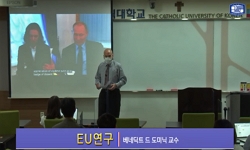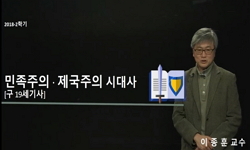In historical context, Sino-centrism was so flexible that it could had been sustained even in the period of military conquest of Chinese mainland by the northern nomadic peoples, by asserting that the essence of Chinese superiority lay in culture. Wit...
http://chineseinput.net/에서 pinyin(병음)방식으로 중국어를 변환할 수 있습니다.
변환된 중국어를 복사하여 사용하시면 됩니다.
- 中文 을 입력하시려면 zhongwen을 입력하시고 space를누르시면됩니다.
- 北京 을 입력하시려면 beijing을 입력하시고 space를 누르시면 됩니다.
https://www.riss.kr/link?id=A76161677
- 저자
- 발행기관
- 학술지명
- 권호사항
-
발행연도
2003
-
작성언어
Korean
-
주제어
洋務運動 ; 民族意識 ; 華僑 ; 華工 ; 光緖初 ; 國權主義 ; 修約改定 ; Nationalism ; Self-Strengthening Movement ; Early Guangxu Period ; Overseas Chinese ; Chinese Laborers ; Treaty Revision
-
등재정보
KCI등재
-
자료형태
학술저널
- 발행기관 URL
-
수록면
175-211(37쪽)
- 제공처
- 소장기관
-
0
상세조회 -
0
다운로드
부가정보
다국어 초록 (Multilingual Abstract)
In historical context, Sino-centrism was so flexible that it could had been sustained even in the period of military conquest of Chinese mainland by the northern nomadic peoples, by asserting that the essence of Chinese superiority lay in culture. With the intrusion of Western forces in the 19th century, however, such Sino-centrism gradually came to face serious challenges. As a result, there began to emerge new concerns for national interest and nationality, especially beginning in the late Tongzhi and early Guangxu period.
During that period, with the task of 'pacifying the exterior'(安外) looming large amid the restrengthening of foreign aggressions, efforts to reinforce China's defense capabilities both in inland frontiers and coastal areas continued, bringing in considerable results. Also in domestic politics there proceeded rather noteworthy improvements since the importance of 'self-rule'(自治) came to be reemphasized in relation to the desired 'self-strengthening.'
In relation with such developments, efforts at adjusting foreign policies started during just that period. Their primary aim was to protect and recover national interests as well as to enhance national prestige in the face of the strengthened aggressions from the Western and some other neighboring countries. Such efforts now came to be made rather notedly as to revise the existing unequal treaties with the West, along with attempts to promote commercial and industrial interests of China.
In addition, overseas Chinese, both laborers and merchants, formerly considered as 'abandoned people'(棄民), now came to be regarded as 'Chinese subjects and offspring'(臣民赤子). So measures to protect them and to utilize their wealth for famine relief and maritime defense began to be launched in earnest, accompanied by the establishment of consulates in major foreign cities. Also in relation with some neighboring tributary nations such as Korea, more aggressive policies came to be adopted, especially after Japanese annexation of Liuqiu Kingdom in 1879.
Such developments the author thinks can be termed 'incipient nationalism', which paved way for the more full-fledged nationalistic efforts after the defeat in the 1894-95 Sino-Japanese War. In all, the significance of such 'incipient nationalism' which took concrete form during the early Guangxu period cannot be disregarded in that it broadened the scope of the Self-strengthening Movement.
목차 (Table of Contents)
- Ⅰ. 머리말
- Ⅱ. 國權인식과 條約改定의 요구
- Ⅲ. 利權保護ㆍ回復의 지향
- Ⅳ. 華工問題의 認識과 對策
- Ⅴ. 華商保護 요구와 領事설치의 확대
- Ⅰ. 머리말
- Ⅱ. 國權인식과 條約改定의 요구
- Ⅲ. 利權保護ㆍ回復의 지향
- Ⅳ. 華工問題의 認識과 對策
- Ⅴ. 華商保護 요구와 領事설치의 확대
- Ⅵ. 맺음말
동일학술지(권/호) 다른 논문
-
- 동양사학회
- 李成珪(Lee Sung-Kyu)
- 2003
- KCI등재
-
- 동양사학회
- 朴志焄(Park Jih-Hun)
- 2003
- KCI등재
-
- 동양사학회
- 金榮濟(Kim Young-Jae)
- 2003
- KCI등재
-
- 동양사학회
- 徐仁範(Seo In-Beom)
- 2003
- KCI등재





 DBpia
DBpia







